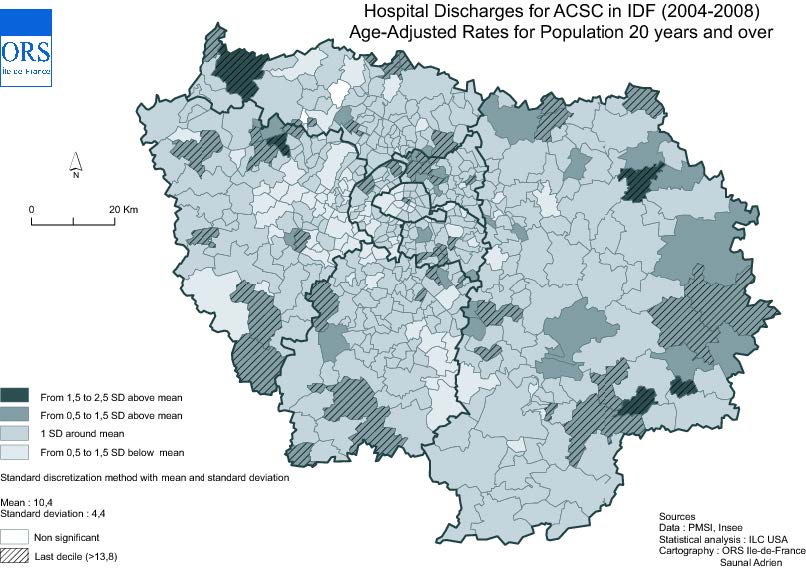Hospitalization for ambulatory-care sensitive conditions (ACSC) in Île-de-France: A view from across the Atlantic
This article presents an indicator used in the United States and other OECD nations (hospitalizations for ambulatory-care sensitive conditions – ACSC) to assess access to primary care services and their capacity to handle a set of medical conditions before they require acute hospital treatment. Based on a study of Ile de France, which relies on residence-based hospital discharge data on patient diagnoses and treatments, the indicator identifies areas where hospitalizations for ACSC appear particularly high. Such hospital stays are considered potentially avoidable. Based on data from the Programme de m.dicalisation des syst.mes d’information (PMSI), disparities are measured. We rely on logistic regression analysis to identify a range of individual factors and neighborhood-level factors that explain these disparities. Access to primary care appears to be worse among residents in areas with average household income in the lowest quartile and among those hospitalized in public hospitals. This raises an important question for the future of health policy. Should areas with higher hospital discharge rates of ACSC be understood as having populations with poor health-seeking behaviors or health care systems not well enough organized to target higher-risk populations?
